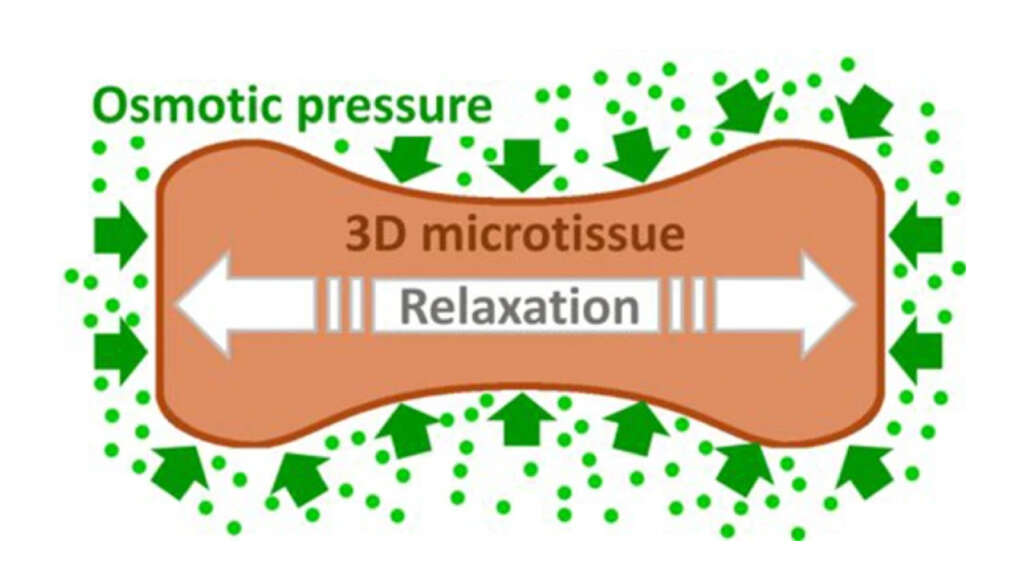L’équipe Ladoux/Mège a contribué à la publication d’un nouvel article dans The European Physical Journal E :
Osmotic pressure induces unexpected relaxation of contractile 3D microtissue
Résumé :
Cell contraction and proliferation, matrix secretion and external mechanical forces induce compression during embryogenesis and tumor growth, which in turn regulate cell proliferation, metabolism or differentiation. How compression affects tissue contractility, a hallmark of tissue function, is however unknown. Here we apply osmotic compression to microtissues of either mouse colon adenocarcinoma CT26 cells, mouse NIH 3T3 fibroblasts, or human primary colon cancer-associated fibroblasts. Microtissues are anchored to flexible pillars that serve as force transducers. We observe that low-amplitude osmotic compression induces a rapid relaxation of tissue contractility, primed by the deformation of the extracellular matrix. Furthermore, we show that this compression-induced relaxation is independent of the cell type, proportional to the initial tissue contractility, and depends on RhoA-mediated myosin activity. Together, our results demonstrate that compressive stress can relax active tissue force, and points to a potential role of this feedback mechanism during morphogenetic events such as onco- or embryogenesis.
Cappello G, Wodrascka F, Marquez-Vivas G, Radwan AE, Anoop P, Mascheroni P, Fouchard J, Fabry B, Ambrosi D, Recho P, de Beco S, Balland M, Boudou T. Osmotic pressure induces unexpected relaxation of contractile 3D microtissue. Eur Phys J E Soft Matter. 2025 Jun 24;48(6-7):34. doi: 10.1140/epje/s10189-025-00497-0. PMID: 40553370.

